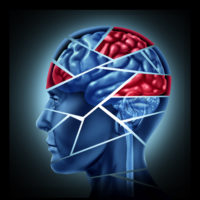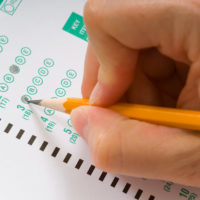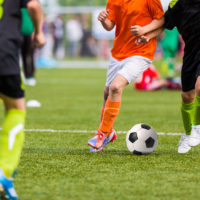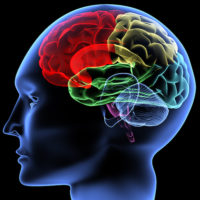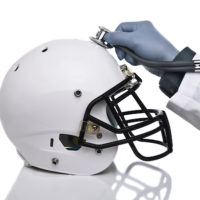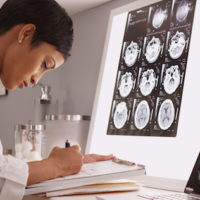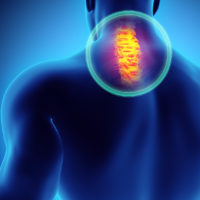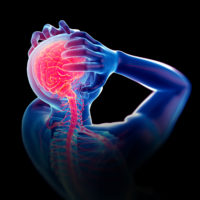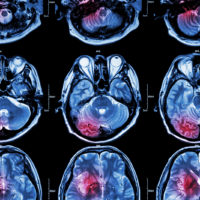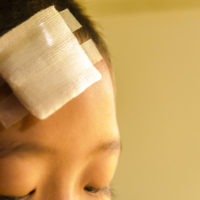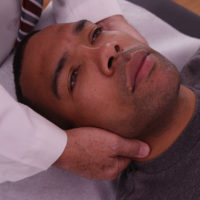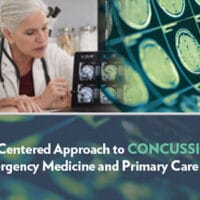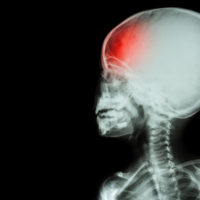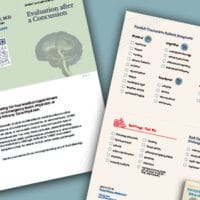Archive
Diagnostics
Learn about diagnostic evaluations of concussions and other brain injuries.
Concussion in Young Children: What You Need to Know
An early childhood teacher talks with Dr. Sandel about about concussion in young children. What causes it? What do we need to look for? And how can we help during the recovery process?
Brain Injury Research — Still Lacking in the 21st Century
There are many unanswered research questions about concussion diagnosis, pathophysiology, risk factors, and effective treatments. About 50 are included here to emphasize the fact that we still need a lot more research in brain injury medicine for advances in diagnosis and treatment.
What’s It Like to Have a Brain Injury?
Stories of people who experience a traumatic brain injury can help to support and educate others. Seth had a protracted recovery, but ultimately a good one. (2 parts)
What Effect Does Concussion Have on Learning?
Stories of athletes like Brittany who experience concussions or more severe brain injuries can help to educate others. She did get back on track.
A Parent’s Key Role after a Child’s Concussion
Parents play a major role in identifying the effects of concussions in their daughters and sons, helping them manage symptoms, and supporting their recovery.
Be a Parent Advocate for Children and Youth Sports Concussions
Parents must communicate with the school after their son or daughter has a concussion to make sure that there are accommodations if needed during recovery.
Empowering Your Kids to Speak up About Concussions in Youth Sports
There are many reasons why kids do not report concussions. They must be educated about brain injuries, including concussions. They must be empowered to report to an adult any symptoms after a blow to the head, neck, or body that causes neurological symptoms (like dizziness, headache, or confusion). Removal from the sport or activity followed by evaluation by a licensed healthcare provider should be expedited.
Talk to Your Kids About the Concussion Risk of Collision Sports
Children and adolescents must understand that if they have any symptoms after a blow or jolt to the head or neck they must stop immediately and get help from an adult.
A Neuropsychologist is a Brain Injury Expert
Neuropsychologists are psychologists with training in brain functioning. They offer evaluations, education, and counseling for people with brain injuries. Health can educators help, too, because education is a key part of concussion care.
What is ImPACT for Concussion and Who is It For?
The Immediate Post-Concussion Assessment and Cognitive Test (ImPACT), an FDA-approved computerized tool for evaluating people with a suspected concussion, is not a stand-alone diagnostic tool. A comprehensive evaluation that includes additional cognitive testing, a physical examination, and a care plan are necessary.
Getting Top-Notch Care after a Concussion
Concussion clinics vary in terms of protocols and personnel. Neuropsychologist Richard Delmonico discusses one model in the Kaiser Permanente health system.
Can We Adequately Treat Concussion?
Finding a physician specializing in brain injury medicine can be difficult because the field is relatively new, but there are resources to help.
Check the Neck after a Brain Injury
Whiplash and cervical strain occurs when a person’s head and neck are forced back and forth, injuring soft tissues of the neck. They are common after brain injuries.
Evaluating and Treating Headaches After Brain Injury
Headaches are extremely common after a traumatic brain injury, but there are various treatments that vary depending on the phenotype or cause.
Post-Traumatic Headaches: Not Just One Type or Treatment
Headaches must be evaluated with a comprehensive history and physical examination. There are many options for treatment, but diagnosis has to be the first step.
Brain Imaging after an Injury
CT and MRI scans are the most common imaging modalities to evaluate people with traumatic brain injury, but advanced imaging methods are more promising for diagnosis and prognosis. However, interpretations of findings can vary.
Why is “Post-Concussion Syndrome” Controversial?
We do not yet have a clear understanding of what happens in the brain immediately after a concussion and over the days and months that follow, especially for those patients whose symptoms persist. Post-concussion symptom rates vary greatly among research studies, likely because the populations studied are diverse and so are the diagnostic criteria and timing of assessments. The wide variation in symptom rates highlights the fact that there is a lot we still don’t know about concussions.
Top Causes of Concussion in Children and Adolescents
When we think of “youth” and “concussion,” the first thing that likely comes to mind is a teenager engaging in a high-risk activity such as football, soccer, or snowboarding. But not all youth brain injury results from these risky activities. Of the millions of concussions reported by emergency rooms every year, figures put concussions related to sports and recreation at just 30% – so 70% of concussions result from other causes.
Is Concussion a Diagnosis?
Clinicians like me say that concussion requires a clinical diagnosis based on the history of what happened to produce the symptoms. However, because these same symptoms appear in other conditions, and we don’t have reliable biomarkers, diagnosing a concussion can sometimes be a challenge. The lingering effects of a mild brain injury can also continue as a chronic condition, often referred to as post-concussion syndrome or persistent post-concussion symptoms, that still require treatment.
Mood Disorders Such as Depression Can Complicate a Brain Injury
A traumatic brain injury can be associated with depression or another mood disorder, possibly because of the disruption of brain chemicals.
A Patient-Centered Approach to Concussion Care: CME & Webinar
Elizabeth Sandel, MD, a physiatrist and brain injury medicine physician, and Conor Gormally, co-founder of Concussion Alliance — a young man who has experienced several concussions — present a patient-centered care approach for emergency medicine and primary care physicians.
Will My Child Experience Long-Term Consequences from a Concussion or other Brain Injury?
Although most children recover fully after a single concussion, others have long-term effects. Of course, prevention is the best strategy, but if a concussion occurs, parents must understand a brain injury has occurred.
How Long Will It Take for My Child to Recover from a Concussion?
Children can experience a range of symptoms after concussion. They require individualized treatments and strategies for returning to activities and to school. A physician with training and experience in treating concussions must provide early interventions and follow-up, regardless of how long recovery takes.
Self-Reported Concussion Symptoms are Key to Evaluation & Diagnosis
To properly diagnose a concussion and devise a treatment plan requires a thorough physician evaluation, a symptom checklist or an interview, or both, followed by a comprehensive cognitive and physical examination. Download a pocket guide that helps patients prepare for being evaluated.
Keep up to date
Get updates on the latest in concussion, brain health, and science-related tools from Dr. Elizabeth Sandel, M.D.
By clicking SIGN UP, you agree to receive emails from Dr. Sandel and agree to our terms of use and privacy policy.

